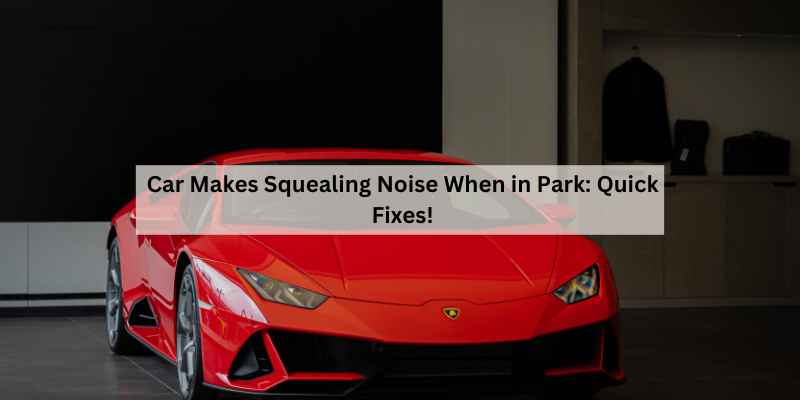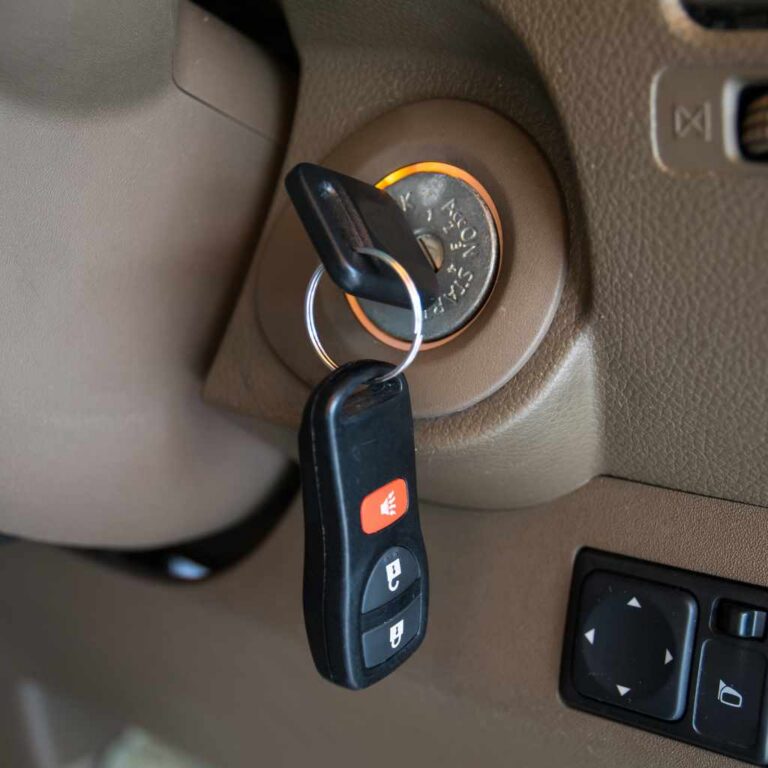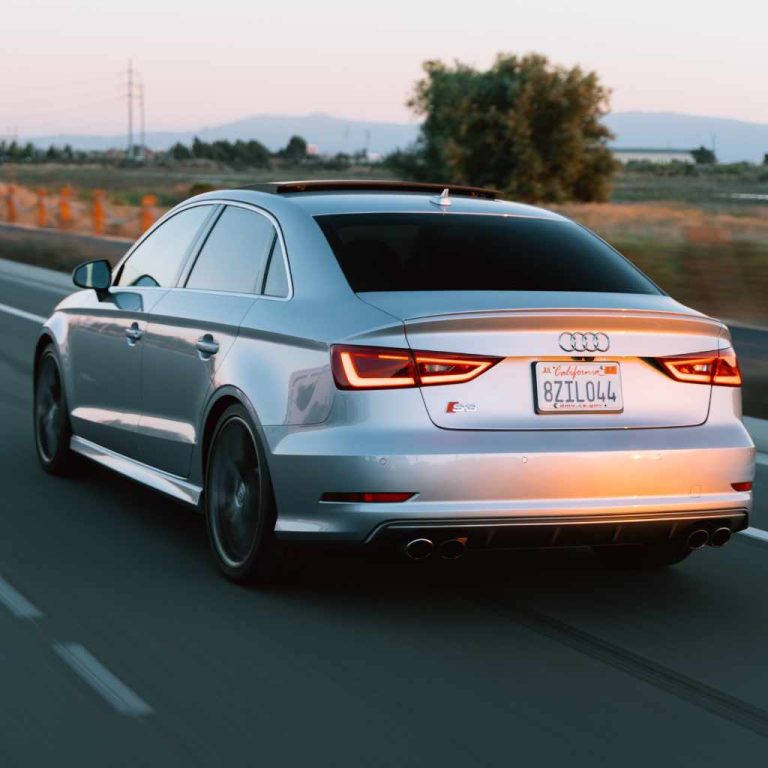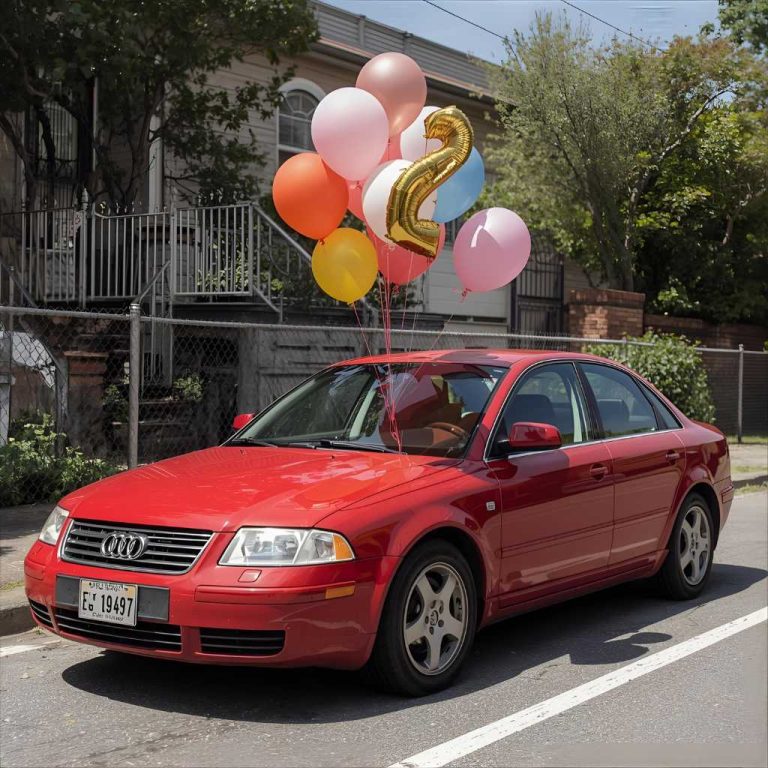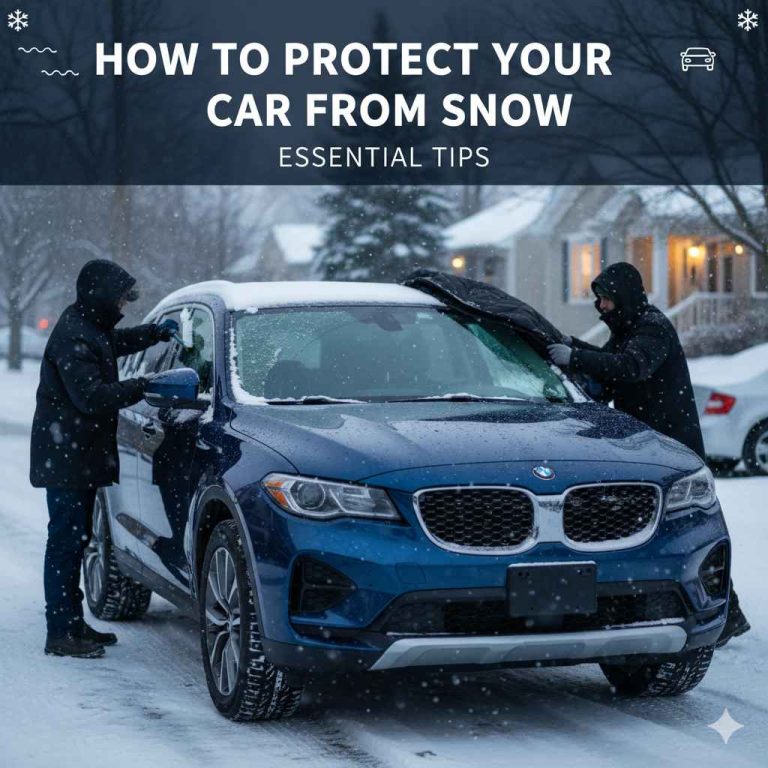Car Makes Squealing Noise When in Park: Quick Fixes!
A car makes a squealing noise when in park due to worn-out belts or a failing alternator. Other causes include low power steering fluid or issues with the brake system.
Squealing noises from your car can be concerning, especially when the vehicle is in park. These sounds often indicate underlying issues that may require attention. Identifying the source early can prevent further damage and costly repairs. Common culprits include worn serpentine belts, low fluid levels, or malfunctioning components.
Drivers should pay attention to these noises to ensure their vehicle remains in optimal condition. Understanding the potential causes can help you take timely action, whether it’s a simple fix or a more complex problem requiring professional assistance. Keep your car running smoothly by addressing these warning signs promptly.
Introduction To Common Car Noises
Many car owners hear squealing noises while their vehicle is in park. These sounds can indicate potential issues. Common causes include worn-out brake pads, loose belts, or low power steering fluid. Identifying the source early can save money and prevent further damage.
Ignoring these noises can lead to serious problems. Brake failure is a risk when pads wear out. A loose belt may affect engine performance. Low fluid levels can cause steering issues. Always pay attention to your car’s sounds.
| Noise Type | Possible Cause | Action Needed |
|---|---|---|
| Squealing | Worn brake pads | Replace brake pads |
| Squeaking | Loose belt | Tighten or replace belt |
| Hissing | Low power steering fluid | Check and refill fluid |
Potential Causes Of Squealing When Parked
Belt issues can cause a car to make a squealing noise. The serpentine belt may be worn or damaged. A loose or misaligned belt can also create noise. Regular checks of the belt can help prevent problems.
Brake complications can lead to similar sounds. Worn brake pads may create a squeal. A stuck caliper can also cause noise when parked. Inspecting the brakes regularly ensures they work well.
Inspecting Your Vehicle For The Source
Before inspecting your vehicle, ensure your safety first. Always wear protective gear like gloves and goggles. Make sure the engine is off and the keys are out of the ignition.
Check the area around your car for hazards. Look for any sharp objects or slippery spots. Keep children and pets away from the vehicle while you inspect it.
| Visual Inspection Tips |
|---|
| Check for worn or damaged belts. |
| Look at the brake pads for wear. |
| Inspect the wheels for any issues. |
| Examine the suspension for any loose parts. |
| Listen for any unusual sounds while moving. |
Belt-related Squeals And Solutions
Check the belt tension regularly. A loose belt can cause a squealing noise. Use a tension gauge for accuracy. If the tension is off, adjust it accordingly.
Worn belts should be replaced immediately. Look for cracks, fraying, or glazing. These signs mean the belt is old and weak. New belts can stop squealing and improve performance. Always choose quality replacement parts for best results.
Brake System Checks For Parked Squeals
A squealing noise when the car is in park often signals a problem. The brake pads may be worn out or damaged. Inspecting the brake pads is crucial for safety. Look for cracks, wear, or debris on the pads. They should be replaced if they appear thin or frayed.
Regular maintenance helps keep the brake system in good shape. Pay attention to any unusual sounds or vibrations. If the noise continues, it is wise to consult a professional. They can provide a thorough inspection and ensure everything is working properly.
Ignoring these sounds can lead to more serious issues down the road. Always prioritize your safety and the safety of others on the road.
Additional Troubleshooting Tips
Listening for changes in the squealing noise is important. Pay attention to the pitch and frequency. A change might indicate a deeper issue. For instance, a louder sound may mean a worn belt or brake problem.
Knowing when to seek professional help is crucial. If the noise persists, don’t ignore it. A mechanic can provide a thorough inspection. Ignoring the problem may lead to costly repairs later. Always prioritize your safety and your vehicle’s performance.
Preventive Maintenance To Avoid Future Noises
Regular inspection helps catch issues early. Schedule inspections at least every six months. Check brakes, belts, and fluids for wear. Look for squeaks or squeals during tests.
Key maintenance tasks include:
- Inspect brake pads and rotors for wear.
- Check power steering fluid levels.
- Examine drive belts for cracks or frays.
- Change engine oil regularly to keep the engine healthy.
- Lubricate hinges and latches to prevent noise.
Keep a record of maintenance done. This ensures nothing is overlooked. Consistency in maintenance leads to a smoother ride.
Conclusion: Embracing Vehicle Maintenance
Regular vehicle maintenance keeps your car running smoothly. Squealing noises often indicate problems. Ignoring these sounds can lead to costly repairs. Proactive care helps you catch issues early.
Check your vehicle’s belts and brakes regularly. Worn out parts can cause annoying sounds. Keeping an eye on these components ensures safety. Scheduled check-ups will save you time and money.
Investing in maintenance is a smart choice. It enhances your car’s performance and lifespan. Stay informed about your vehicle’s needs. This knowledge empowers you to take better care of your car.
Frequently Asked Questions
Why Does My Car Make A Squealing Sound When I Idle?
A squealing sound while idling often indicates worn or loose serpentine or drive belts. It may also stem from low power steering fluid or failing pulleys. Regular maintenance can prevent these issues and ensure a smoother ride. Always consult a mechanic for a thorough inspection.
Why Does My Car Make A Noise When In Park?
A car may make noise in park due to a few reasons. Common causes include worn engine mounts, loose components, or exhaust issues. Sometimes, the transmission may create sounds when idling. Regular maintenance helps identify and resolve these problems effectively.
Always consult a mechanic for a thorough inspection.
Why Does My Car Squeak When I Turn To Park?
A squeaking noise while turning to park often indicates worn-out steering components or low power steering fluid. Check your power steering fluid level and inspect the belts. If the noise persists, consider consulting a mechanic for a thorough inspection to ensure safe driving.
Why Is My Car Making A High-pitched Squealing Noise?
A high-pitched squealing noise from your car usually indicates worn brake pads. It can also stem from loose or damaged belts. Check for any debris caught in the brakes or engine components. Prompt inspection is essential to prevent further damage.
Always consult a mechanic for accurate diagnosis and repair.
Conclusion
A squealing noise from your car while in park can signal various issues. Addressing this promptly can prevent further damage and costly repairs. Regular maintenance is key to keeping your vehicle in top shape. Always consult a professional if unsure about the source of the sound.
Stay proactive for a smoother ride.

